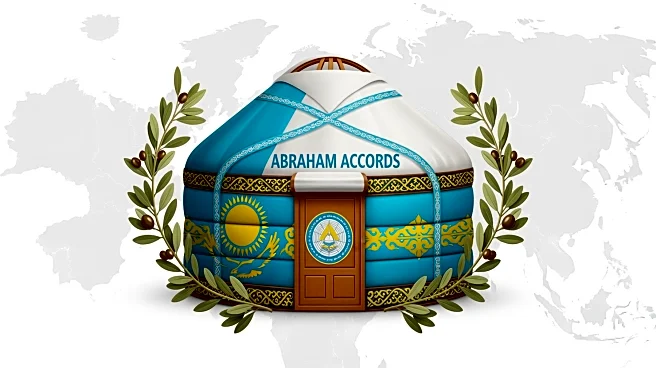What's Happening?
President Trump announced that Kazakhstan will join the Abraham Accords, a move aimed at normalizing relations between Israel and Muslim-majority nations. This announcement followed a call between Trump, Israel's Prime Minister Benjamin Netanyahu, and Kazakhstan's
President Kassym-Jomart Tokayev. Kazakhstan already maintains diplomatic and economic ties with Israel, making this decision largely symbolic. The U.S. is seeking to increase its influence in Central Asia, a region historically dominated by Russia and increasingly courted by China. U.S. special envoy Steve Witkoff indicated that an official signing ceremony will be announced soon, with hopes that Kazakhstan's entry will reinvigorate the Abraham Accords, which have been stalled due to the Gaza conflict.
Why It's Important?
Kazakhstan's inclusion in the Abraham Accords represents a strategic move by the U.S. to strengthen its geopolitical presence in Central Asia. This region is crucial due to its proximity to Russia and China, both of which have significant interests there. The expansion of the Abraham Accords could enhance diplomatic relations and economic partnerships, potentially leading to increased stability and cooperation in the region. For Kazakhstan, joining the accords may bolster its international standing and economic opportunities, while for the U.S., it signifies a successful foreign policy initiative that could counterbalance Russian and Chinese influence.
What's Next?
The official signing ceremony for Kazakhstan's entry into the Abraham Accords is expected soon, which may prompt other Central Asian countries to consider joining. The U.S. will likely continue to encourage Saudi Arabia to join the accords, although Riyadh has been hesitant without progress towards Palestinian statehood. The expansion of the accords could lead to further diplomatic engagements and economic collaborations between member countries, potentially reshaping alliances and power dynamics in the region.
















